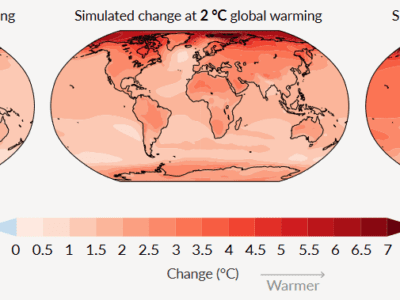On China’s Remarkable Viral Air Pollution Video
Can 200 million viewers (and counting) be wrong?
Last Saturday evening, my research assistant (a wonderful JD student raised and educated in China) sent me a message: “This is a link to a documentary directed by Chai Jing (柴静). It has raised public concern about air pollution.” In perhaps the understatement of the year, she added: “Many Chinese people have been watching it.”
The link was, of course, to Chai Jing’s remarkable documentary “Under the Dome,” which in less than a week has garnered more than 200 million views online. This is a video so viral that even American Vogue has already blogged about it (next to a headline proclaiming: “Kim Kardashian West and Jared Leto Take the Peroxide Plunge Front Row at Balmain!”). Discussion of the video, a TED talk-style exploration of China’s air pollution crisis, has dominated Chinese social media for the past week. The new head of China’s environmental ministry said in his first press conference that he had texted Chai to thank her for making the film.
Yet, other parts of the Chinese bureaucracy have signaled concern about the burst of popular support for the video. Webpages on the official People’s Daily site featuring the film and an interview with Chai have been pulled down in the last few days (see here). One government authority has apparently issued an order to media not to “hype” the video and to regulate public opinion on the matter. [UPDATE: By this morning (Mar. 6), the video has been pulled from major Chinese video websites – youku, qq, sohu, etc.]
This mixed official reaction to the video highlights one of the biggest challenges to what Premier Li Keqiang has called China’s “war on pollution.” The official policy response to China’s pollution problem over the last decade has primarily involved top-down, bureaucratic measures – state control over its minions. This has included subjecting local officials to more stringent environmental targets and administrative orders to install pollution control equipment and shut down outdated industrial facilities. These measures have worked to some extent, but have also been fraught with implementation challenges common to top-down, target-based approaches (evasion, data falsification, etc.; just look at the Atlanta school testing scandal).
Environmental regulators have, on the other hand, placed an enormous bet on the role of transparency and public participation in solving these implementation problems. The newly amended Environmental Protection Law incorporates a major section on open information, public supervision, and public interest litigation. Give the public the tools, the theory goes, and they will be allies in the fight against pollution. Citizens would thus serve as “fire alarms,” alerting authorities to problems and reducing the cost of monitoring China’s vast landscape of industrial facilities.
But public supervision only works when citizens are given sufficient space to run. Too much control and the system breaks down. The conflict here is akin to the debate over China’s “bird-cage economy,” transplanted to the sphere of risk regulation (“The cage must not be too small, lest the bird suffocate, but there had to be a cage to contain the bird, otherwise it would fly away.”).
The public reaction to Chai Jing’s video shows that citizens are more than ready to fly. The question now is just how big the cage will be.







Reader Comments